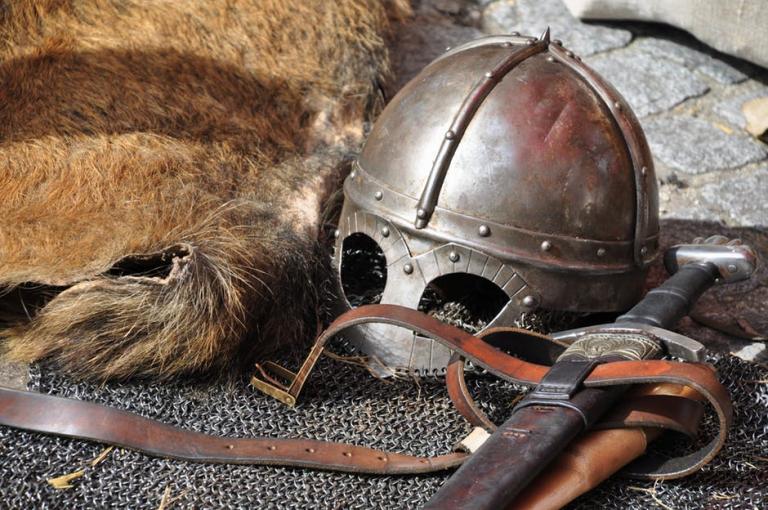“The witch that cannot curse cannot bless”
This is an oft repeated axiom within both Wiccan, Pagan and Witchcraft circles. But what if we have over complicated the matter due to sensibilities and cautious sensitivities which have sought out a truism as if justifying a curse to our peers? If you identify as a witch or Wiccan, let me ask you a question: When was the last time you cast a blessing? And I don’t mean when fashioning the circle, but as something you have been called to do as extraordinary circumstances. Alternatively, when was the last time you casually uttered: “Damn it”?
The simple fact is, throughout history, cursing has been the predominant petition to the supernatural forces, especially in the Classical world. But, and here is the crux of our discourse upon the matter, what if the curse was upon the very thing that afflicts or restricts in some way, and the success of the curse is a condition of blessedness or good health?
If we think about it, it’s something we do all the time anyway: “damn this rotten cold!” This might sound facetious but, I assure you, the purpose is most serious. Cursing is, as an historical folk magical operation, so frequent in our society that we still throw them about carelessly without even a second thought to the words we speak.
 Now, this is cause for shame; not that we curse but that we bandy words around without care. From the Anglo-Saxon folk magics, to Goetic and ceremonial Necromancers, even Neoplatonists of the Iamblichan school, the careful use of incantation, galdr, and preservation of sacred words is of utmost emphasis. At least one school of philosophy would hold that frequent and profane use of incantations, the uttering of sacred words, would render them impotent. Indeed, this may even be the origin of the taboo against misuse of sacred words, such as is found in Biblical literature, and the Christian church, as blasphemy.
Now, this is cause for shame; not that we curse but that we bandy words around without care. From the Anglo-Saxon folk magics, to Goetic and ceremonial Necromancers, even Neoplatonists of the Iamblichan school, the careful use of incantation, galdr, and preservation of sacred words is of utmost emphasis. At least one school of philosophy would hold that frequent and profane use of incantations, the uttering of sacred words, would render them impotent. Indeed, this may even be the origin of the taboo against misuse of sacred words, such as is found in Biblical literature, and the Christian church, as blasphemy.
My great-grandfather, who lived into his nineties and experienced most of the twentieth Century in his lifetime, used many a variation on common curses, all contrived so as to avoid saying the actual words. Examples include such harmless expressions as ‘Crikey’, a simple euphemism for Christ, and ‘cor blimey’, a Medieval solemn oath meaning ‘may god blind me,’ which recent generations would find ready on their lips with nary a thought.
But does that mean we shouldn’t curse? On the contrary, there are many perfectly reasonable a use for curses which find that they are on equal footing to a blessing. Here’s that crazy thought again: what if we curse the thing that’s bothering us? Well, isn’t that how curses generally work? Damn it, you’re right!
That last was a deliberate curse at the thing I did that was wrong. Granted, a silly little curse, about as effective as the thing itself, which is very little in this case. But the principle is the same. I found something that was erroneous and held some wrong and cursed it. I used the colloquial and socially acceptable incantation, as well, the short form of ‘God damn it’.
Now, in a roundabout manner, I have come to the cut and thrust of this thought: we curse things all the time. It’s ok. It doesn’t mean you can’t bless, in fact you’re more practiced in cursing – I guarantee it. But is the very point of a curse is to be put to a predominantly beneficent purpose, at least to the condition of the one making the petition? Most of the Roman curses found at Bath petitioned Sulis-Minerva for justice. Much as medieval charms, the general intention appears to be, punish a thief, return or find stolen goods, catch an adulterer, name a liar or troublemaker, etc. These are all pretty petty, routine and daily encounters. In fact, they mostly appear to be appealing to a force higher than the harmed party for what they perceive to be some slight or wrong put right.
In conclusion, a curse is much more useful than a blessing, especially in cases of dire need, and a petition to a higher power is the surest way to do it. Whether you ‘damn’ your cold, curse some small thing, it’s all the same. Traditional English Magic would use curse as the first line of defence, and restoring a state of blessing or health, in most cases. They lived in harder times and realised that, sometimes, an aggressive stance with what could harm was the best approach. The same works with spirits; sure, a banishing ritual is nice but, if you’re being harassed, a good curt ‘fuck off!’ will work just as good, if not better (it’s at its most elegant when done in a Northern English accent, I find). And so, I leave you with an example of a less shy time, when social mores were not so sensitive to such issues, nor confused about offence.
The following has been labelled, ‘Against a wen‘ and is an example of an Anglo-Saxon charm, although it is a curse. One thing that is interesting to note is that a “wen is a tumour or goitre, not necessarily dangerous” (Griffiths, 2003). When studying traditional folk magics, especially the type we will reproduce here, one notes that anthropomorphizing is an assumed characteristic. Indeed, a wen was also considered a type of malign spirit which afflicted people. In a rather shamanic technique, the charm calls for the enchanter to personify the invader, some mischievous sprite that must be charmed away, and assault it with a barrage of abuse that would make Gordon Ramsey blush. This is, a charm which affects a lengthy curse upon the cause of the ailment and a perfect example whereby a curse is a blessing in disguise. Using the principle of a double negative whereby the baleful thing is assaulted with negative incantation and a positive outcome results.
 For literary example of the principle, I recommend The Way of Wyrd by Brian Bates which commences with an Anglo-Saxon wizard/shaman battling an ailment by summoning the spirit and giving fight, and thus healing the woman.
For literary example of the principle, I recommend The Way of Wyrd by Brian Bates which commences with an Anglo-Saxon wizard/shaman battling an ailment by summoning the spirit and giving fight, and thus healing the woman.
Wen! Wen! ugly little wen,
Here you shall not build, nor no home set up,
But you must go north from here to a nearby hill,
Where you have, you unhappy thing, a brother.
He shall place a leaf on your head.
Under the foot of the wolf, under the wing of the eagle,
under the claw of the eagle, continually you will be worn away.
May you be consumed like burning coal in the hearth,
may you shrink way like dung
and evaporate like water in a rock.
You will become as tiny as a linseed,
and much smaller than a cricket’s hip-bone,
and thus you shall be so small that you change into nothing.
(Griffith, 2003)
Griffiths, B. (2003) Aspects of Anglo-Saxon Magic. Revised edn.Anglo-Saxon Books

















